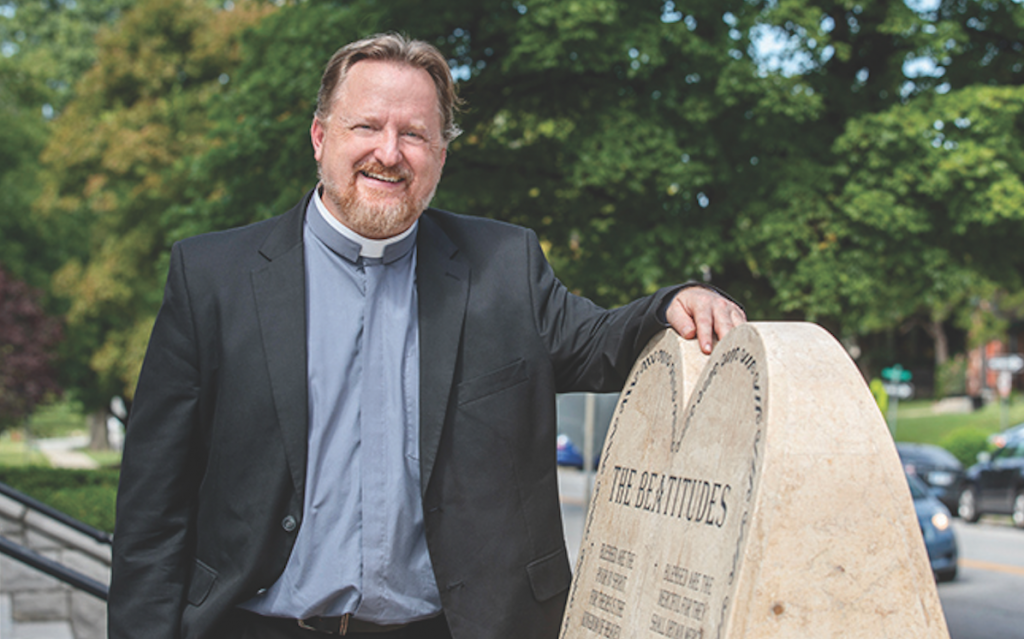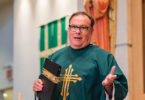
by Deacon Bill Scholl
Do you shrug like me when come you across the “humble brag” in your social media feed?
You know the hashtag . . . so-blessed-by-being-so-awesome posts that signal status more than authentic gratitude? I so dislike the humble brag that I rarely want to post, lest it be misconstrued as boasting.
That’s why I was so struck by the turn of phrase “the humble gaze” that Pope Francis used at a recent economic conference. He said what is needed is “the humble gaze of one who sees in every man and woman he or she meets a brother and sister whose dignity must be respected, before possibly being a customer with whom to do business. He or she is a brother, a sister, a person.” (See the Oct. 8 conference with the Centesimus Annus Pro Pontifice Foundation.)
We live in an age when to what and even how we pay attention is more and more a moral action. Silicon Valley, Hollywood and mainstream media all capitalize our attention.
Carefully crafted strategies and algorithms seek to capture, hold and form our gaze. They track and monetize our attention often without our awareness. It is now more important than ever to pay attention to whom/what we pay attention.
We also need to look around for what and who we ignore.
In the Gospel, we hear Jesus warn that those who go to hell pay attention more to themselves, while they ignore or look down on others: “Lord, when did we see you hungry or thirsty or a stranger or needing clothes or sick or in prison, and did not help you?” (Mt 25:44).
As disciples of Jesus, we must frequently ask ourselves: “Is Jesus nearby?” We can look for Our Lord by cultivating a humble gaze.
A humble gaze is the intentional action of looking up from our phones and looking around for those who are hurting, lonely or in need of the love that we have received from God — which, by the way, is everybody at some point or another — and doing what we can to ease pain, be present or love another.
The humble gaze is the true path to #soblessed. “Everything stems from one’s way of looking and from where one looks,” Pope Francis continued at the conference.
“To look down on another person is legitimate only in one situation: [when] helping him or her get up.”






